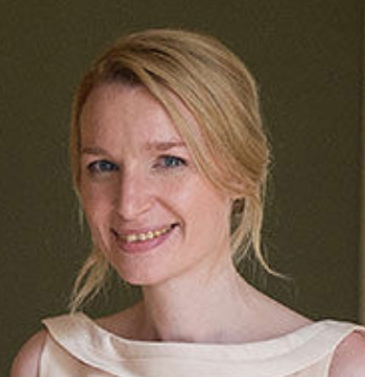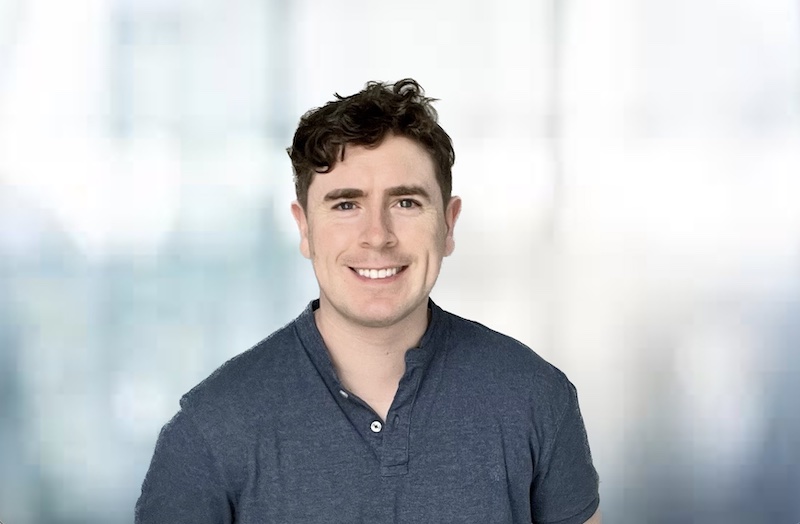Here you can find out about current GEReCo members. Associate members are listed here, and Honorary members here.
Anthony Barlow
Anthony Barlow is Programme Leader and subject leader for Geography Education at the University of Roehampton. He has Qualified Teacher Status (QTS) and taught primary-age children in Bolton and London. His research focus is understanding child and teacher understandings of where they live. Anthony is a trustee of the Geographical Association, a member of the EYPPC and GeogLive! committee.
Recent publications
Barlow, A. and Whitehouse, S (2019) Mastering Primary Geography Bloomsbury
Barlow, A (2019) Exploring the climate in context through Geography in Doull, K and Ogier, S (2023) Teaching Climate Change and Sustainability in the Primary Curriculum
Barlow, A and Brack, S. Primary Geography In Action (2026) John Catt
Current research and projects
BlueGreenSW14
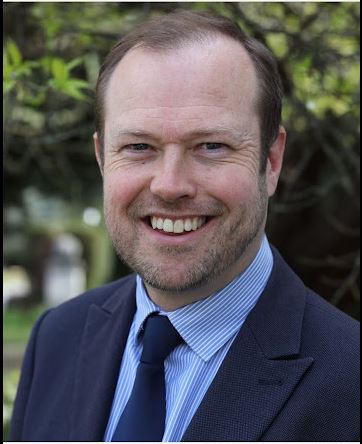
Academic profile
https://pure.roehampton.ac.uk/portal/en/persons/anthony-barlow
ORCID iD
Simon Catling
Simon is emeritus professor of primary education in the School of Education, Oxford Brookes University, from which he retired fully in 2014. He was Associate dean of Education and tutor in primary geography education for undergraduate and post-graduate ITE courses, and worked with Masters and Doctoral students. A Past-President of the Geographical Association (1992-3) he has been involved in primary education having held posts a class teacher and deputy headteacher in three primary schools in inner London. He has published widely about primary geography in professional and research journals, as well as books for primary children and for teachers and teacher educators, since the later 1970s, and given many papers at national and international conferences since the early 1990s. His interests include primary geography textbooks and general books on geography for young children, curriculum development and change, children’s geographies and current geographical issues for primary children.
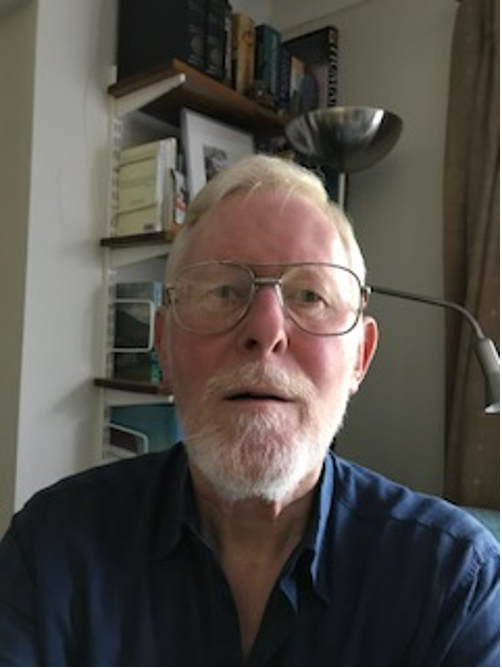
School of Education, Oxford Brookes University
Current research and projects
The GA’s Primary Geography Quality Mark
Recent publications
Catling, S (2021, in press) Reflecting on knowledge and primary geography, in M Fargher, D Mitchell and E Till (Eds) Recontextualising Geography Education. Springer.
Catling, S and Owen, C (2021) Societal issues as a context for learning: ‘Climate Emergency’, in T Higginbottom and M Lu (Eds) Creating Inspirational Schools: Reflection, collaboration and leadership. Leek: Lifeworlds Learning, pp.230-299.
Catling, S (2020) Reflecting on the Purpose of Mapwork in Primary Schooling, International Journal of Cartography, 6(3), 27-283.
Matt Finn
Matt is an Associate Professor in Human Geography in the Geography department at the University of Exeter. He explores changes in the contemporary conditions of education and works to understand how childhood and young people’s lives vary globally. He brings this to his scholarship of geographical learning and education which is informed by a participatory action research ethos. A fellow of the Royal Geographical Society (with the Institute of British Geographers) and Principal Fellow of the Higher Education Academy, he is the Dissertation Award Officerof the RGS-IBG Geography and Education Research Group committee. He is a member of the editorial collective of the Geographical Association journal Geography.
Recent publications
Hadfield-Hill, S., Finn, M. et al. (2023) ‘Expanding the scope of ethical research with and for children and young people – six viewpoints on crisis, cross-cultural working and reciprocity’, Children’s Geographies, pp. 1–10. doi: 10.1080/14733285.2023.2259331.
Finn, M. (2021). Questioning recontextualisation: considering recontextualisation’s geographies. In D. Mitchell, M. Fargher (Eds.) Recontextualising Geography in Education, Springer Nature.
Finn, M., Hammond, L., Healy, G., Todd, J.D., Marvell, A., McKendrick, J.H., Yorke, L. (2021). Looking ahead to the future of GeogEd: creating spaces of exchange between communities of practice. Area, 54(1): 1-11 doi.org/10.1111/area.12701
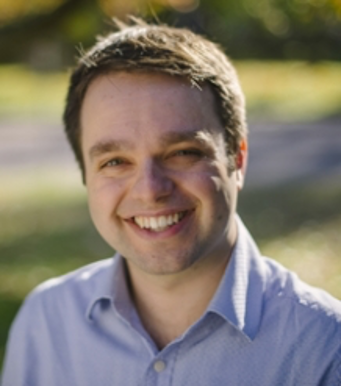
Academic profile https://geography.exeter.ac.uk/staff/index.php?web_id=Matt_Finn
Lauren Hammond
Lauren is Associate Professor of Geography Education and Fellow of Reuben College at the University of Oxford. Lauren began her career as a teacher of geography and head of department in schools, working primarily in London and Singapore. Prior to joining the University of Oxford, Lauren was Lecturer in Geography Education at IOE, UCL’s Faculty of Education and Society (2014-2022) and Lecturer in Teacher Education at Moray House School of Education and Sport, University of Edinburgh (2022-2024). Lauren is recognised as Senior Fellow of the Higher Education Academy (SFHEA) for her work in connecting research and teaching across the disciplines of geography and education, and her work in mentoring and partnership in teacher education. She is Honorary Lecturer at IOE, UCL’s Faculty of Education and Society and Associate Fellow of the Centre for Teachers and Teaching Research (CTTR).
Lauren’s research is interdisciplinary and examines the relationships between children, geography and education. She is particularly interested in children’s geographies and children’s citizenship, and in considering how education can empower young people in their lives and futures. Lauren is also interested in geographies of education and education spaces and examining how in/justices are (re)produced in, and through, education, and the relationships between education, space and place. Lauren’s scholarship mainly lies in the field of Geography Education, and she is interested in how geography is constructed, taught, experienced and imagined from the early years through to postgraduate level, and in a range of spaces. Lauren is committed to developing geography education research(ers) and serves as Secretary for the Geography Education Research Collective (GEReCo). Lauren is an active member of the Geographical Association (GA) and Fellow of the Royal Geographical Society (FRGS), as well as being a member of the Royal Scottish Geographical Society (RSGS) and Scottish Association of Geography Teachers (SAGT).
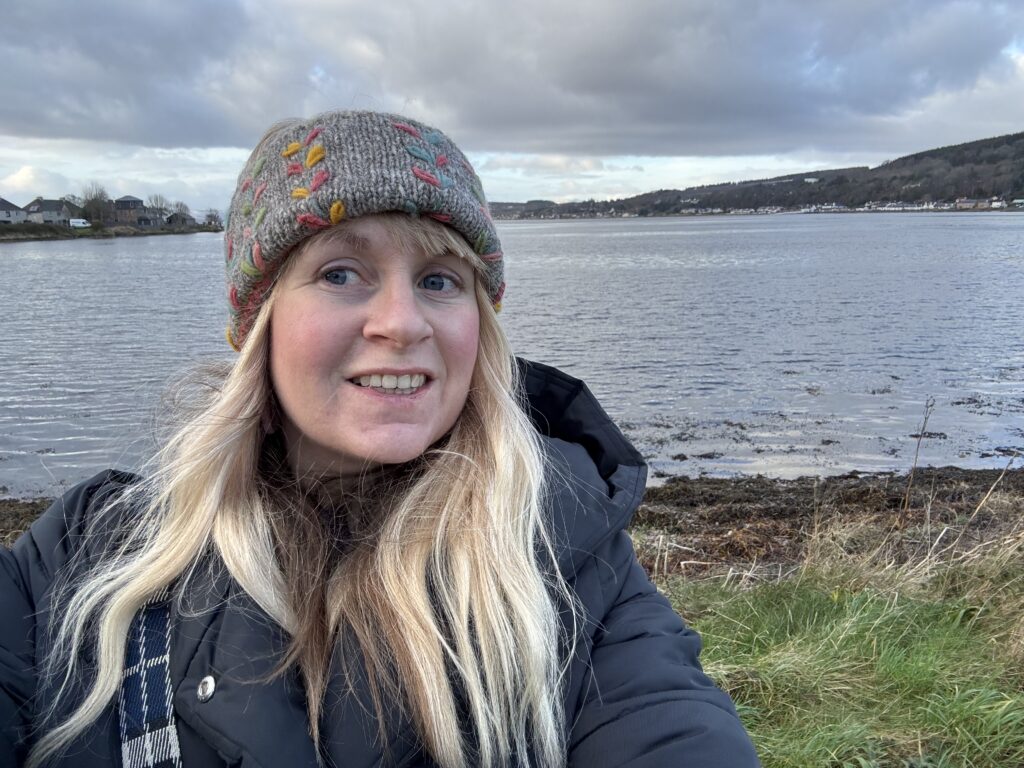
Academic profile https://www.education.ox.ac.uk/person/lauren-hammond/
Recent publications
Hammond, L. Healy, G. Bladh, G. Tani, S. (2024). Reflecting on the powers, possibilities and constraints of geography curricula in England, Finland and Sweden. Journal of Curriculum Studies. https://doi.org/10.1080/00220272.2024.2420366
Healy, G. Hammond, L. (2024). Navigating personal and disciplinary frontiers: Engaging with undergraduate geography students’ reflections on their geographical education. Journal of Geography in Higher Education. https://doi.org/10.1080/03098265.2024.2403078
Hammond, L. Biddulph, M. Catling, S. McKendrick, J. H. (2023). Children, Education and Geography: Rethinking Intersections. Abingdon: Routledge.
Grace Healy
Grace Healy is the Curriculum Director at David Ross Education Trust. Grace leads the Trust’s curriculum and teacher development work and a curriculum team of Trust-wide subject leads. As part of this role, she works closely with Principals to sustain a model for continuously renewing all aspects of curriculum intent, to build capacity in senior curriculum leadership, and to ensure a culture of subject-sensitivity and disciplinary rigour pervades all work on teacher development. She is also the Director of a newly designated Teaching School Hub. She has previously led the geography subject community across a multi-academy trust of 13 primary and secondary schools and contributed to the leadership of a SCITT. She is currently undertaking a PhD at UCL Institute of Education. Grace chairs the Teacher Education Phase Committee of the Geographical Association. She is Treasurer for GEReCo and the RGS’s Geography and Education Research Group. She also serves on British Educational Research Association’s (BERA) Publication Committee and on the editorial boards of The Curriculum Journal and the London Review of Education. Her principal research interests are in curriculum theory, senior curriculum leadership, the subject-specific mentoring and professional development of teachers, geography teachers’ curricular theorising, and knowledge-exchange across schools and universities in the domains of both geography and education.
Recent publications
Healy, G., Laurie, N., & Hope, J. (2023) Creating stories of educational change in and for geography: what can we learn from Bolivia and Peru? Geography, 108(2), 64-73. https://doi.org/10.1080/00167487.2023.2217629
Healy, G., Hammond, L. Puttick, S. and Walshe, N. (Eds.). (2022) Mentoring Geography Teachers in the Secondary School. Abingdon: Routledge. https://doi.org/10.4324/9781003157120
Walshe, N. and Healy, G. (Eds.). (2021) Geography Education in the Digital World: Linking Theory and Practice. London: Routledge. doi.org/10.4324/9780429274909
Rebecca Kitchen
Becky is the CPD, Curriculum and Marketing manager at the Geographical Association, a Senior Leadership Team role with responsibility for professional development innovation and activity. She has extensive experience working with external partners including Learn Sheffield, Shropshire Local Authority, United Learning MAT and the Croatian government, to support and develop teacher networks both in the UK and internationally. She is a Chartered Geographer and lead assessor for the GA Professional Award which requires teachers to engage in deep and critical reflection about the professional development that they undertake and the impact that this has on their teaching in geography. Her research interests focus on student perceptions and representations of geographical knowledge and geography teacher professional development.

Academic profile
https://www.geography.org.uk/write/MediaUploads/About%20us/Rebecca_Kitchen_biography.pdf
ORCID iD
Recent publications
Kitchen, R. and Kinder, A. (forthcoming) The professional development of teachers of geography in England, in Artvinli, E., Gryl, I., Lee, J. and Mitchell, J. (eds.) Geography teacher education and professionalization, New York: Springer.
Kitchen, R. (2021) Using mobile virtual reality to enhance fieldwork experiences in school geography, in Walsh, N. and Healy, G. (eds.) Geography Education in the Digital World, Abingdon: Oxford.
Hopkin, J. and Kitchen, R. (2018) Geography, global citizenship and Global Learning in the UK, in Demirci, A., de Miguel González, R. and Bednarz, S. (eds.) Geography Education for Global Understanding, New York: Springer.
David Lambert
David is Emeritus Professor of Geography Education at UCL Institute of Education, London. He graduated from the University of Newcastle, completing a PGCE at the University of Cambridge and a PhD at the University of London. He was a secondary school teacher for twelve years, becoming deputy principal of a comprehensive school. He wrote award winning school textbooks and became a teacher-educator from 1986, since when he has published widely on the curriculum, pedagogy and assessment of geography in education. He was Chief Executive of the Geographical Association from 2002-2012, being appointed Professor of Geography Education in 2007, before retiring in 2018.
Biddulph M., Lambert D. and Balderstone, D. (2020) Learning to Teach Geography, 4th Edn, London: Routledge
Lambert, D. (2019) Editorial: On the knotty question of ‘recontextualising’ geography. International Research in Geographical and Environmental Education, 28, 4, 257-261
Guile, D., Lambert, D. and Reiss, M. (eds) (2018) Sociology, Curriculum Studies and Professional Knowledge: new perspectives on the work of Michael Young. Abingdon: Routledge.
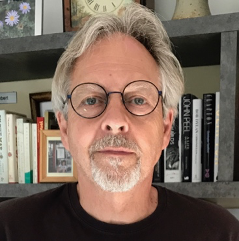
Academic profile
David Mitchell
David currently co-leads a Geography initial teacher education programme at UCL Institute of Education. He taught and led geography in a range of state schools in England before moving into teacher education and research. He has close ties to the Geographical Association, having worked with teachers in a number of curriculum development projects. David’s research interests are in the teacher’s role and agency in the geography curriculum, in particular in relation to education for sustainability. David is PI of the EU funded ‘GeoCapabilties 3’ project, completing in September 2021 and he is active in an international community of Geography Educators. He has published papers in a number of peer reviewed journals and is the author of ‘Hyper-Socialised’ a book exploring the potential of teachers as autonomous ‘curriculum makers’ in late capitalism.
Recent publications
Mitchell, D. (2022) ‘GeoCapabilities 3: Knowledge and Values in Education for the Anthropocene’, International Journal of Geography and Environmental Education.
Mitchell, D. and Stones, S. (2022) ‘Disciplinary knowledge for what ends? The values dimension in curriculum research in the Anthropocene era’. London Review of Education.
Beneker, T. and Mitchell, D. (2022) ‘Teaching migration with a geographic capabilities approach – expanding children’s concept of ‘home’’, in Biddulph, Hammond and McKendrick (eds) Children, Education, and Geography: Rethinking Intersections. Abingdon: Routledge.

Academic profile https://iris.ucl.ac.uk/iris/browse/profile?upi=DJMIT50
Steve Puttick
Steve is Associate Professor of Teacher Education at the University of Oxford, and Fellow of St Anne’s College. He is a curriculum tutor for the Geography PGCE and MSc Learning and Teaching. He is a qualified geography teacher and was previously the head of department at a comprehensive secondary school in Oxfordshire. Steve serves on the editorial collective of the journal Geography, and is Chair of GEReCo. His research focuses on the intersection between the academic discipline and school subject of geography. This work includes attention to the journeys through which information travels into classrooms, beginning teachers’ experiences of school subject departments, and the role of written lesson observation feedback in constructing ‘good teaching’. Collaborations with colleagues in the School of Geography and the Environment are seeking to contribute to anti-racist curriculum futures, including in the school subject, and in postgraduate teaching through the Oxford-UNISA course ‘Decolonising Research Methods’.

Academic profile
http://www.education.ox.ac.uk/people/steven-puttick/
ORCID iD http://orcid.org/0000-0003-4939-8323
Recent publications
Puttick, S. (2025) Geographical Education III: Changing climate, changing geographies, changing geographical education? Progress in Human Geography, https://doi.org/10.1177/03091325241313467
Puttick, S. (2024) The Geography Teaching Adventure: reclaiming exploration to inspire curriculum and pedagogy, Routledge.
Puttick, S. (2023) Geographical Education II: Anti-racist, decolonial futures, Progress in Human Geography, https://doi.org/10.1177/03091325231202248
Puttick, S. (2022) Geographical Education I: fields, interactions and relationships, Progress in Human Geography, 46(3), 898-906.
William Quirke
William is a Teaching Fellow at the Strathclyde Institute of Education, University of Strathclyde, where he serves as the PGDE Secondary Geography Subject Coordinator and contributes to primary initial teacher education programmes, with a focus on geography education. In addition to his work in geography education, William’s teaching and knowledge exchange activities also cover Learning for Sustainability (a Scotland specific term encompassing Education for Sustainable Development, Global Citizenship Education, and Outdoor Learning) and practitioner enquiry. He is recognised as a Senior Fellow of the Higher Education Academy (SFHEA).
Prior to joining the Strathclyde Institute of Education, William taught geography and rural skills and was Faculty Head of Social Studies & RMPS at a Scottish secondary school.
In 2024, William was awarded the Fulbright Global Challenges Teaching Award and is currently co-developing a virtual exchange/collaborative online international learning (VE/COIL) initiative focused on trans-Atlantic climate education. Previously, he was the Scottish partner in the Erasmus+ Island Schools project and maintains an interest in geography and sustainability education in island and rural contexts. Additionally, William is interested in how young people engage with local environments. His EdD research explores adolescent interactions with urban open spaces, specifically examining the spatial distribution of these spaces in Scottish urban areas and how this influences their usage by adolescents.
Recent publications
Quirke, W., McCrorie, K. & Proctor, S. (2025). Teaching Social Studies: Exploring a combined multidisciplinary and transdisciplinary approach towards Scottish Initial Teacher Education. Journal of Curriculum Studies. (Accepted for Publication).
Hammond, L., Quirke, W., Curley, A., & Milne, J. (2024). Geography in the Broad General Education in Scotland: tensions. opportunities and suggestions for the future. Teaching Geography, 49(2), 69-72. https://discovery.ucl.ac.uk/id/eprint/10189998/
Wall, K., Hanna, A., McCrorie, K., Quirke, W., Lauder-Scott, N., Sims, R., Ross, L., Elizabeth, Marysia, Brooke, Amy, Freya & Sophie, (2024) Learning about research was confusing until we started creating our own questions and research: enacting student voice through a ‘Students as enquirers’ project, Curriculum Journal, 35(1), 137-140. https://doi.org/10.1002/curj.237
Iram Sammar
Iram is a Geography doctoral student and teaching fellow (BA in Social Sciences and BSc/BA in Geography) at King’s College London. Her interdisciplinary research focuses on decolonising geography education by challenging Eurocentrism and racism(s) advocating for anti-racism and virtuous pedagogy. She holds an MA in Geography Education and PGCE in Secondary Geography with versatile teaching experience of geography in schools in London. Iram was honoured with the Ordnance Survey Award by the Royal Geographical Society (with the Institute of British Geographers) for excellence in geography education at the secondary level. Drawing from her personal geographies and critical Muslim perspective, she writes blogs and articles on decolonial research and anti-racism to help teachers and educators improve their geographical curricula. As the Director of Salaam Geographia, Iram offers consultations on critical dialogue on race, representation, and knowledge production. Her passion for racial equity in schools and academia aims to confront racism and transform geography curricula. With expertise in event coordination and presentations, she is committed to postgraduate advocacy as an appointee of the RGS-IBG RACE Committee. Iram has provided consultancy for the Geographical Association and a range of schools and institutions nationwide on her Who am I? activity and decolonial pedagogical strategies. She collaborates with the Decolonising Geography Collective and community organisations to tackle injustices in knowledge production and representation of Indigenous, Black, Brown and Global Majority voices.
Recent publications
Puttick, S., Hammond, L., & Sammar, I. (2024). Decolonising geography education: Spaces, processes, politics and people (P. Kraftl, Y. Chen, S. Holloway, & S. R. Kučerová, Eds.; 1st ed.). Edward Elgar Publishing.
Sammar, I. R. (2024). Critical pedagogical engagement with Muslim geographies. Dialogues in Human Geography, 0(0). https://doi.org/10.1177/20438206241289394
Sammar, I. (2024). Decolonial and anti-racist pedagogy through personal geographies. Teaching Geography, 49(1), 22-25.
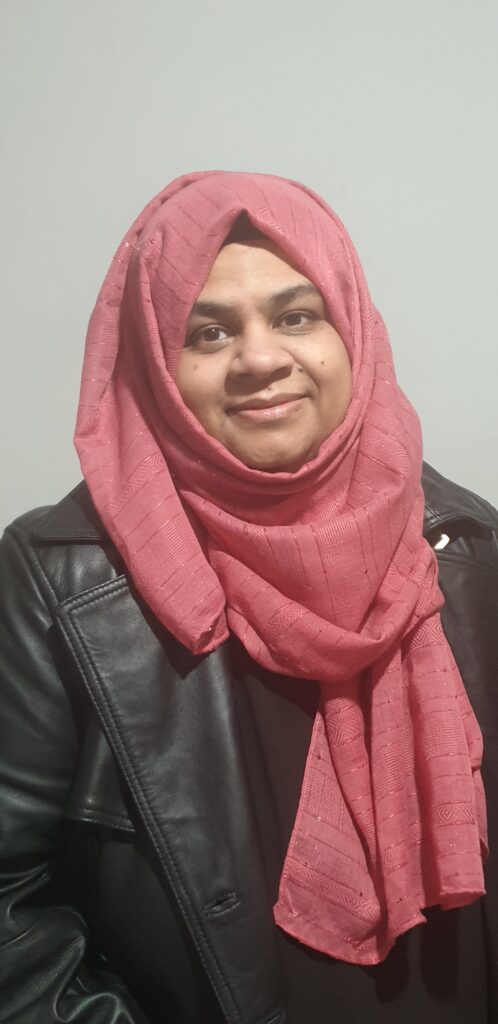
Academic profile https://kclpure.kcl.ac.uk/portal/en/persons/iram-sammar
